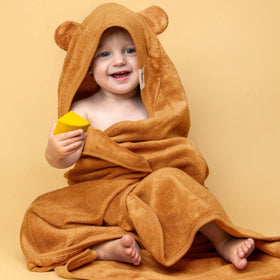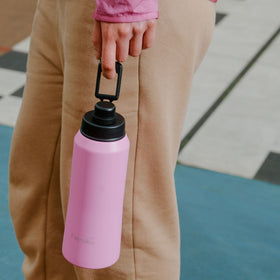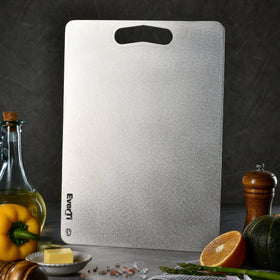
Teething
Teething is an issue we are often asked about, and we carry quite a few products that our customers have recommended to us as being useful.
My two children seemed to get through teething relatively unscathed, although I did find that a chilled cucumber baton or two were always well received when the pearly whites were popping through! Likewise, the cooling teether rings were a favourite toy when they'd been popped in the fridge. Having two on the go was a great idea as there was always a cool one available.
If your little one does seem to be suffering from nappy rash, or diarrhoea, or any of the other health problems often associated with teething, it is a good idea to get them to the doctor to be checked out, as research has proved that these are not necessarily teething issues.

Teething
- Teething is natural. A lot of research has been done which shows that babies are not more irritable or unwell when teeth come through.
- Despite this, many people, including parents and doctors, believe babies are in pain, irritable, have sleep problems, and get snuffly around the time they get new teeth.
- If your baby seems to have the problems that are often called "teething problems", the problems are real, but may not be caused by teething.
- When a new tooth is moving up through the jaw into the mouth, the gums might look red and swollen. We might think this causes pain, but it might not cause pain.
- Teething gels, biting on something hard (such as a teething ring), paracetamol or ibuprofen seem to help some babies. If your baby seems distressed you could try them. They do not cause harm. Work out the correct dose of paracetamol or ibuprofen for your baby, using information on the bottle.
- Do not use lemon juice on your baby's gums. Lemon juice has a lot of acid and can harm new teeth by dissolving the tooth enamel.
Other Health Problems
Other health problems when babies are at the age that teeth come through may include:
- waking a lot at night
- being restless and irritable in the daytime
- colds or other infections
- a temperature (fever)
- a rash, especially a nappy rash
- diarrhoea.
These are not likely to be caused by teething. If your baby seems unwell, see your doctor.
What parents can try
If your baby seems to be in pain, the following suggestions may help.
- Give the baby something firm to bite on, such as a cold teething ring, a toothbrush or a dummy.
- Some babies prefer mushy food for a while because it needs less chewing, while others like something firm to chew on. Rusks can be good.
- Try a stick of cold cucumber, or a cool, wet facewasher.
If there is a lot of pain, some dentists or doctors may suggest using paracetamol or teething gels (please see your doctor or dentist before using these).
Please note that the information on this site should not be used as an alternative to professional care. If you have a particular problem, see a doctor, dentist or your health practitioner.










